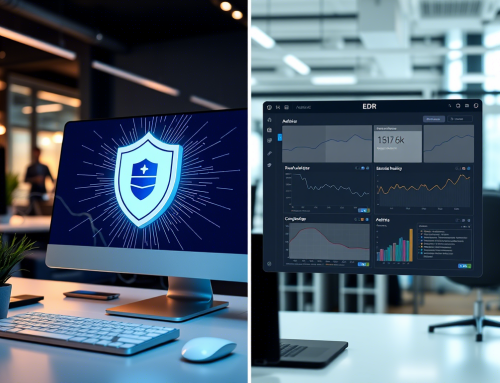Cybersecurity has become a crucial field in today’s internet-driven world, and its importance will only grow as we approach 2025. Fast-paced advancements in technology bring with them emerging threats, pushing businesses and governments to invest heavily in defending their digital assets. This wave of demand has created a wealth of career opportunities for cybersecurity professionals—and with high salaries, job security, and the chance to make a real-world impact, it’s never been a better time to pursue a career in this field.
Here are the 10 best careers in cybersecurity for 2025, based on current trends, evolving roles, and future needs.
1. Cybersecurity Analyst
A cybersecurity analyst is responsible for managing a company’s security measures and defending against potential breaches. They use various cybersecurity techniques to detect, analyze, and mitigate risks. This role often involves reviewing incident logs, analyzing potential threats, and implementing proactive security measures.
Key Skills:
- Familiarity with intrusion detection systems
- Practical knowledge of the OWASP Top 10 guidelines
- Expertise in incident analysis and response
Why it’s in demand:
With the rise in sophisticated cybersecurity incidents, businesses need analysts who can protect sensitive data and mitigate risks.
2. Penetration Tester (Ethical Hacker)
Penetration testers, also known as white-hat hackers, simulate cyberattacks to identify vulnerabilities in a system before malicious agents find them. They ensure systems and networks are airtight by regularly stress-testing security.
Key Skills:
- Vulnerability analysis
- Strong understanding of OWASP Top 10 vulnerabilities
- Expertise in advanced cybersecurity techniques
Why it’s in demand:
With proactive defense strategies becoming more critical, penetration testing is essential for businesses aiming to stay ahead of potential threats.
3. Incident Responder
Incident responders act as the first line of defense during a cyberattack. They work on containing threats, analyzing causes, and providing solutions to prevent similar breaches in the future.
Key Skills:
- Incident detection and response analysis
- Knowledge of cybersecurity trends 2025
- Crisis management
Why it’s in demand:
The increasing number of high-profile cybersecurity incidents means organizations must have dedicated professionals to respond effectively.
4. Cloud Security Engineer
With businesses migrating to cloud-based storage solutions, protecting sensitive data in the cloud is now more critical than ever. Cloud security engineers design and implement secure systems that shield users from breaches and attacks.
Key Skills:
- Encryption standards
- Secure cloud architecture design
- Expertise in safeguarding privacy online
Why it’s in demand:
The rise of cloud-powered enterprises places massive responsibility on cloud security engineers to ensure data remains secure and compliant.
5. Threat Intelligence Analyst
Threat intelligence analysts research, identify, and monitor emerging threats to cybersecurity. They keep enterprises informed of potential future risks and advise on necessary precautions.
Key Skills:
- Threat evaluation and risk trends
- Deep understanding of cybersecurity techniques
- Reporting and intelligence-based analysis
Why it’s in demand:
Companies are increasingly taking preventive measures to avoid costly breaches. Threat intelligence analysts give businesses valuable foresight.
6. Chief Information Security Officer (CISO)
A CISO acts as the captain of an organization’s cybersecurity efforts. They oversee strategies, ensure compliance, and advise leadership about investments in cybersecurity infrastructure.
Key Skills:
- Leadership and strategy development
- Knowledge of cybersecurity trends 2025
- Risk management expertise
Why it’s in demand:
With boards and investors placing cybersecurity at the forefront of business priorities, the CISO role has grown significantly in prominence.
7. Privacy Engineer
Privacy engineers focus on integrating privacy controls into systems and applications. They ensure that organizations respect user privacy while complying with regulations like GDPR and CCPA.
Key Skills:
- Expertise in data protection laws
- Designing systems that enable users to remain invisible on the internet
- Familiarity with internet privacy tools
Why it’s in demand:
Privacy continues to be a growing concern, and consumers increasingly demand secure platforms that protect their data from misuse.
8. Application Security Engineer
Application security engineers design secure applications by identifying vulnerabilities, implementing best practices, and testing for flaws. They ensure all software builds are resilient to attacks.
Key Skills:
- Knowledge of OWASP Top 10 vulnerabilities
- Secure coding techniques
- Security testing methodologies
Why it’s in demand:
Businesses are constantly developing new applications, and safeguarding these through secure development processes is crucial.
9. Forensic Expert in Cybersecurity
Cybersecurity forensic experts investigate breaches, recover stolen data, and identify perpetrators. This role intersects law enforcement with cybersecurity knowledge.
Key Skills:
- Data recovery and analysis
- Evidence collection from digital media
- Expertise in originating process of a cyberattack
Why it’s in demand:
With an increasing emphasis on investigating and prosecuting cybercrime, forensic experts play a key role in delivering justice.
10. Cybersecurity Consultant
A cybersecurity consultant works freelance or with firms to advise multiple organizations on improving their security posture. They create tailored security programs based on industry-specific vulnerabilities.
Key Skills:
- Cross-industry knowledge of cybersecurity techniques
- Risk assessment and strategic planning
- Communication and presentation skills
Why it’s in demand:
The flexibility of hiring consultants on a project basis makes them a high-demand role for startups, SMBs, and large corporations alike.
Preparing for the Future of Cybersecurity
Cybersecurity is evolving rapidly, and staying ahead means constant learning. To thrive in this domain in 2025, consider steps such as:
- Upskilling with certifications like CISSP, CEH, or CompTIA Security+.
- Keeping track of cybersecurity trends for 2025 to anticipate industry demands.
- Gaining hands-on experience with tools addressing internet privacy and defense against emerging threats.
Cybersecurity offers some of the most exciting and impactful career paths available today. With roles demanding diverse skill sets, a variety of opportunities exist for learners, professionals, and enthusiasts alike. Whether you’re passionate about protecting against cybersecurity incidents, ensuring privacy online, or analyzing sophisticated incident analysis, there’s a career in cybersecurity for everyone.





